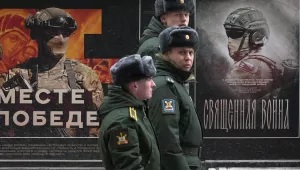Such recent bloody and destructive terrorists attacks, as the September 11th, 2001 attack on the twin towers of the World Trade Center in New York, or the October 2020 hostage-taking at Moscow's Dubrovka theatre, have underscored the important role that mass media can play in ensuring that society has zero tolerance for terrorism. Such an attitude towards terrorism should unify people regardless of what ethnic groups they belong to and what political views they have. At the same time, media's responsibility for the content of reports on terrorism has become the subject of heated debate. This issue is not as simple as it may seem at the first glance.
On one hand, society has the right to have full knowledge of events and only mass media can objectively inform the population about events that have already taken place as well as about the outlook for the future. On the other hand, any newspaper or television news company is a commercial enterprise that is organized to make profit. For a mass media outlet to make profit journalists need to be quick in understanding and interpreting what they have seen and heard. This quickness doesn't always facilitate objective analysis of the events. Moreover, sometimes media reports that have not been duly checked can provoke panic, which only hinders catastrophe management.
There is one problem that all mass media should have a single opinion on regardless of their political leanings and ownership. This problem is the nuclear problem. Until recently, nuclear terrorism has been subject of only Hollywood movie scripts and fiction novels. Today, however, this threat doesn't look phantasmagoric anymore. Terrorists of all stripes would sacrifice a lot to be able to hit humanity with a nuclear stick. They are stubborn and persistent in their efforts to gain access to nuclear technologies, materials and equipment that would enable them to kill millions. The horrible crime committed on September 11th, 2001, demonstrated that there is no limit to the terrorists' cruelty. Russian President Dmitry Medvedev told a press conference held after the World Nuclear Security Summit in Washington, D.C., in April 2010 that nuclear terrorism is a "threat for the entire world." U.S. President Barack Obama concurred with his Russian counterpart. Obama stated that "the danger of nuclear terrorism is one of the greatest threats to global security." These statements demonstrated that there is a common understanding of the problem among world leaders. Mass media was also univocal in reporting on this threat focused on by the April summit.
The question is: What can mass media do to make sure that these bloodthirsty plans never materialize? First of all, mass media should facilitate awareness of the global nature of this threat. It is time some Russian journalists stop using the formula "the worse for the West - the better for us" in their interpretation of events. It is also time that many Western journalists stop clinging to Cold War stereotypes, presenting Russia to their audience as an ally of rogue states, an aggressor and a country where only very lazy people would fail to acquire weapons-grade plutonium with their bare hands.
Terrorists who are trying to acquire nuclear components to kill peaceful people and blackmail governments pose an international threat. State borders do not stop them. Therefore, mass media should be univocal in its interpretation of such terrorists' activities regardless of national preferences. Mass media should first acknowledge the threat and then work to shape zero tolerance in the society for the very idea of using "the nuclear argument" for achieving political goals.
I believe it is important to draft an international document that would set ethical standards for journalists covering efforts to combat terrorism, including nuclear terrorism. There already exists such a document in Russia. It is called "Ethnical Principles of Professional Activities of Journalists Covering Acts of Terrorism and Counter-Terrorism Operations." This document is recognized as a code of ethical standards by the two all-Russian non-government organizations that unite thousands of Russian journalists - The Union of Journalists of Russia and The Media Union. The international journalist community could, perhaps, consider whether to adopt this code, if it were supplemented by a chapter on countering nuclear terrorism.
Of course, it would also be beneficial to hold international conferences, at which journalists would share their opinion on the issue.
The subject of nuclear terrorism will remain the focus of mass media's attention for many decades to come, until humanity completes development of comprehensive measures to control nuclear materials and defeats terrorism as phenomena. It is important to ensure that nuclear terrorism remain a theoretical topic and never become a reality.
Valery Amirov is a professor at the Department of Journalism of the Urals State University.
Amirov, Valery. “Journalists Should Shape Society's Understanding of How Serious Threat of Nuclear Terrorism Is.” July 2010

